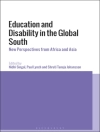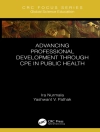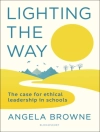The book is organized around four sections. The first section is an introduction to the problem of defining the scope and foundations of the development of moral personality and social engagement, in particular, the development of civic and ethical attitudes and prosocial behavior. The second section presents a comparative analysis of education policies in Mexico, Chile and Colombia, in particular the way the curricula of civic and citizenship education is designed and implemented. The section also describes and analyzes the way this subject is taught in the classrooms of the primary, secondary and high school levels in the three countries. The third section includes the results of research projects in Civics and Citizenship Education conducted with different theoretical and methodological models of analysis. This last section includes some of the best practices of Civic Education that have been developed in Mexico, Colombia, and Chile.
Table des matières
Foreword; Section 1: Civic Education: Theories and Models; Culture and Civic Competence; Widening the Scope of the Civic Domain; From Informed Social Reflection to Civic Engagement: How to Interpret What Youth Say and Do; Section 2: Comparative Politics in Civics in Latin America; Civic and Ethical Education in Mexico: From Classic Civics to the Development of Civic and Citizenship Competencies; Citizenship Education in Colombia: Towards the promotion of a Peace Culture; Evolution of Citizenship Education in Chile: Recent Curricula Compared; Building Citizenship in the Schools of Chile, Colombia and Mexico: The Role of Teacher’s Practices and Attitudes; Section 3: Research in Civics, Ethics and Citizenship; Affective and Cognitive Processes as Determinants of Civic Participation in Latin American Countries; The Civic Competence Gaps in Chile, Colombia and Mexico and the Factors That Account for the Civic Knowledge Gap: Evidence from the 2009 International Civic and Citizenship Education Study (ICCS); Aulas en Paz (Classrooms in Peace): Citizenship Competencies for Peace; Section 4: Successful Practices in Civic Education; Developing Pedagogical and Democratic Citizenship Competencies: “Learning by Participating” Program; Good Practices on Civic Engagement in Chile and the Role of Promoting Prosocial Behaviors in School Settings.












